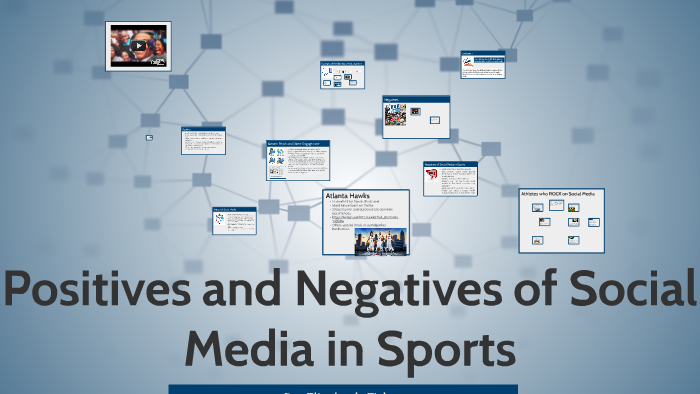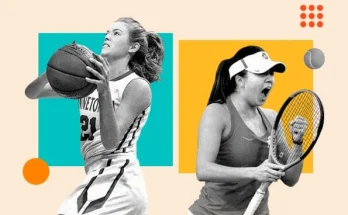
The Influence of Social Media on Athlete Branding and Fan Engagement, In today’s digital landscape, social media has become an indispensable tool for athletes, reshaping how they build their brands and connect with fans. Platforms like Instagram, Twitter, TikTok, and Facebook have given athletes unprecedented access to global audiences, allowing them to showcase their personalities, share their journeys, and engage directly with their supporters. This article delves into the transformative impact of social media on athlete branding and fan engagement, highlighting key strategies and success stories that illustrate this modern phenomenon.
The Evolution of Athlete Branding Through Social Media
Athlete branding has evolved significantly with the rise of social media, offering athletes a platform to cultivate their public personas and connect with fans on a personal level. Unlike traditional media, which often filters and shapes athlete narratives, social media allows athletes to present their stories authentically and in their own voices.
- Building a Personal Brand
- Athletes use social media to build and refine their personal brands, sharing content that reflects their values, interests, and lifestyle. For instance, soccer superstar Cristiano Ronaldo uses Instagram to highlight his fitness routines, fashion choices, and family life, creating a well-rounded image that resonates with his global fanbase. Similarly, tennis legend Serena Williams leverages her platforms to advocate for social justice and women’s rights, aligning her brand with her advocacy work.
- Direct Fan Engagement
- Social media facilitates direct interaction between athletes and fans, fostering a sense of community and loyalty. Athletes can respond to comments, conduct live Q&A sessions, and share behind-the-scenes content, providing fans with a closer look at their lives and careers. This engagement not only strengthens the athlete-fan relationship but also increases fan investment in the athlete’s journey.
- Monetization and Endorsements
- A strong social media presence can attract lucrative endorsement deals and sponsorship opportunities. Brands seek athletes with substantial and engaged followings to promote their products, using the athlete’s influence to reach a broader audience. For example, NBA star LeBron James has capitalized on his social media platforms to secure partnerships with major brands, turning his online presence into a significant income stream.
How Social Media Enhances Fan Engagement
Social media has revolutionized the way fans interact with sports and athletes, providing instant access to content and creating new opportunities for engagement.
- Real-Time Updates and Interaction
- Fans can now follow games, scores, and athlete updates in real-time on social media. This immediacy enhances the fan experience, allowing fans to stay informed and engaged during live events. Athletes often share their thoughts and reactions immediately after competitions, providing fans with insights that traditional media cannot match.
- Global Fanbase Expansion
- Social media has enabled athletes to cultivate fanbases far beyond their home countries. International stars like Lionel Messi and Neymar have millions of followers worldwide, demonstrating the global reach of social media. This global audience contributes to the growth of sports as a universal language, connecting fans from diverse cultures and backgrounds.
- Fan-Generated Content and Community Building
- Fans actively participate in creating and sharing content related to their favorite athletes, from fan art and memes to highlight reels and tribute videos. This user-generated content enriches the athlete’s online presence and fosters a vibrant community. Athletes often acknowledge and share fan content, further strengthening the bond between them and their supporters.
- Influence on Sports Culture and Social Issues
- Social media provides athletes with a platform to address social and political issues, using their influence to advocate for change. This has been evident in movements like Black Lives Matter, where athletes like Colin Kaepernick and Naomi Osaka have used their platforms to raise awareness and support for the cause. Such actions can galvanize fans and initiate broader conversations, highlighting the role of athletes as influential cultural figures.
Challenges and Considerations in the Digital Age
While social media offers numerous benefits for athlete branding and fan engagement, it also presents challenges. Athletes must navigate the pressures of maintaining a consistent and positive online presence while managing the potential for negative feedback and public scrutiny. Additionally, the rapid pace of social media can amplify missteps, leading to potential reputational risks.
Conclusion
The influence of social media on athlete branding and fan engagement is profound, transforming the sports industry and redefining how athletes and fans interact. By leveraging these platforms, athletes can build powerful personal brands, connect with fans globally, and influence cultural conversations. For fans, social media offers unparalleled access to the world of sports, making the experience more interactive and personal. As digital platforms continue to evolve, the relationship between athletes and fans will undoubtedly grow, making social media an essential component of the sports ecosystem.
This article explores how athletes and fans alike can benefit from the strategic use of social media, highlighting the importance of authenticity, engagement, and thoughtful communication. Whether you’re an athlete looking to enhance your brand or a fan seeking closer connections with your favorite sports stars, understanding the dynamics of social media is key to navigating the digital age of sports.


